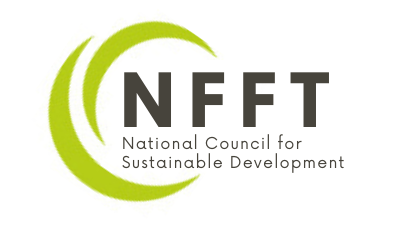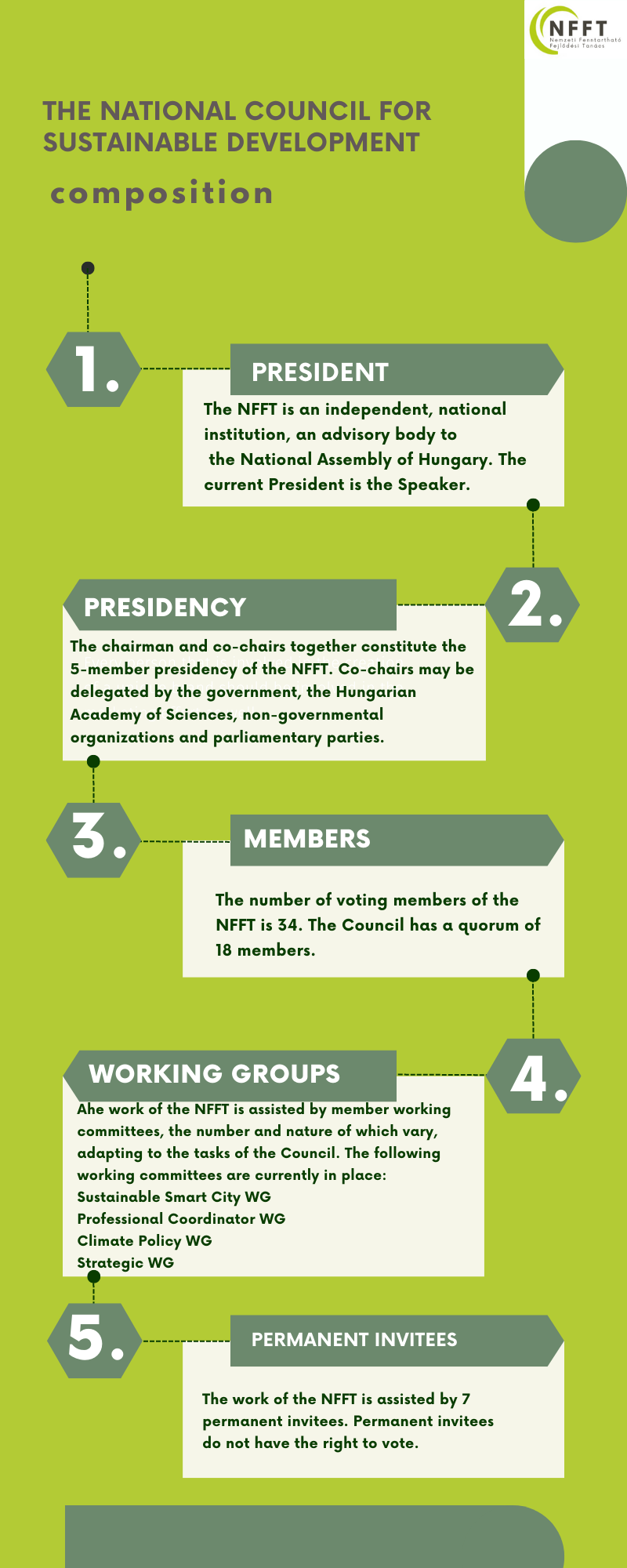Presidency - NCSD
Presidency of the Council
Presidency
The president of the National Council for Sustainable Development (NFFT) is the incumbent Speaker of Parliament, currently László Kövér. The honorary president of NFFT is Katalin Szili who as then speaker of the Parliament initiated the foundation of the Council in 2007.
The Council has four co-presidents. One of them is delegated by the Government. This position is currently held by Sándor Fazekas, minister of agriculture. Three other co-presidents are elected by the Council members from the delegates of the Hungarian Academy of Sciences, the parliamentary groups and civil organisations.
NFFT’s presidency is composed of the president and the co-presidents. The presidency draws up the preliminary annual work plan, convenes the Council and prepares the agenda for NFFT’s meetings based on the work plan and recommendations from members. The presidency is responsible for executing the Council’s resolutions and representing the positions adopted at the Council’s meetings. NFFT’s secretary is a permanent participant of the presidency’s meetings.
The president is entitled to propose candidates for the position of NFFT’s secretary and consult on the delegates with the organisations delegating the member of NFFT.
*****
“The times we live in are extraordinary. The accuracy of this sentence stems from the fact that, – perhaps for the first time in history –every country, every nation of the world is directly experiencing that in the same way as the order of nature cannot be sustained without social order so social order cannot be sustained without the order of nature.
Human responsibility is the main pillar on which the order of nature rests. Responsibility for ourselves, for our ancestors and for our children stems from human morality. Those who corrupt human morality, corrupt our natural environment at the same time.
We, representatives of the institutions with the strongest democratic authorisation in the world are obligated to take action against any power attempting to corrupt the natural or social order.
The principle of sustainability could be a suitable political agenda whereby we could integrally manage the serious challenges the nations of our world must face today. Sustainability is as important as development. In that field, the wrong compromises will have tragic consequences. Sustainability does not only mean a lifestyle respecting the ecological boundaries of Planet Earth -- it also means the preservation of our natural resources, and of the human, social and economic foundations on which our societies rest. This means first and foremost the stability of demographic processes, respect for the sovereignty of the state, the continuous improvement of education, reducing social exclusion, managing state debt, stabilising our systems of social security and it also means good governance.
Hungary’s new Constitution adopted in 2011 stipulates our country’s obligation to participate in international cooperation on sustainable development and proclaims the necessity of representing the interests of future generations. The Constitution also imposes a requirement to protect and preserve natural resources and cultural assets – the nation’s shared heritage. The steps to be taken for sustainability are recorded in a national framework strategy, the implementation of which is overseen by the Parliament with the help of the National Council for Sustainable Development – a consultative interest reconciliation body established by the Parliament. Thus, it is fair to conclude that in Hungary, the nation’s parliament is at the centre of the political institutions for sustainability.”
(Excerpts from the speech delivered by László Kövér at the 4th World Conference of Speakers of Parliament, 2015)


